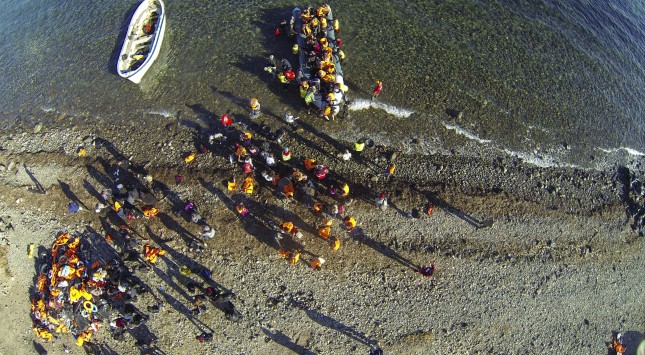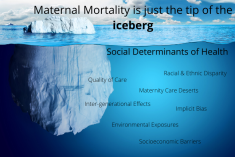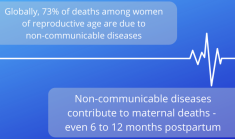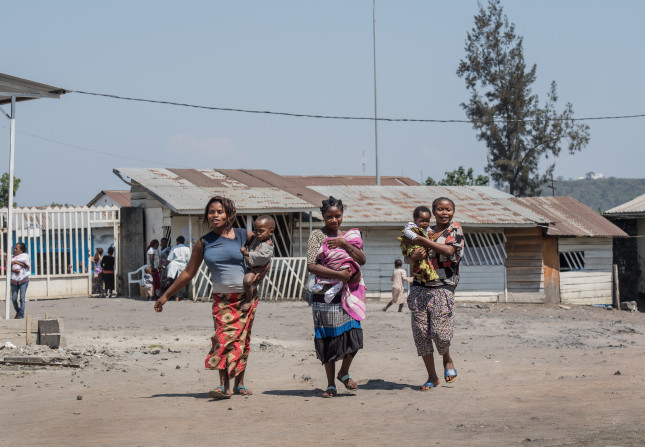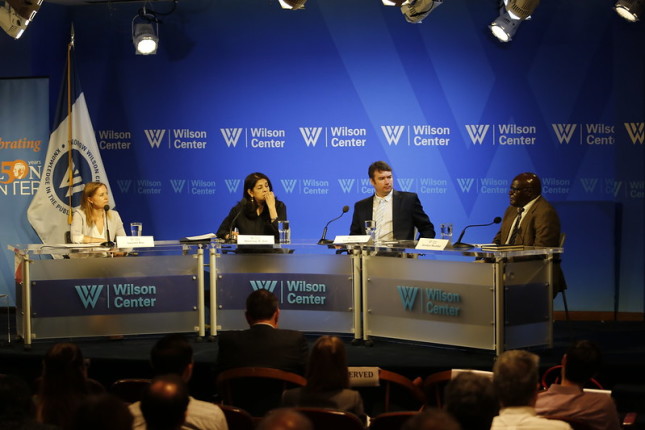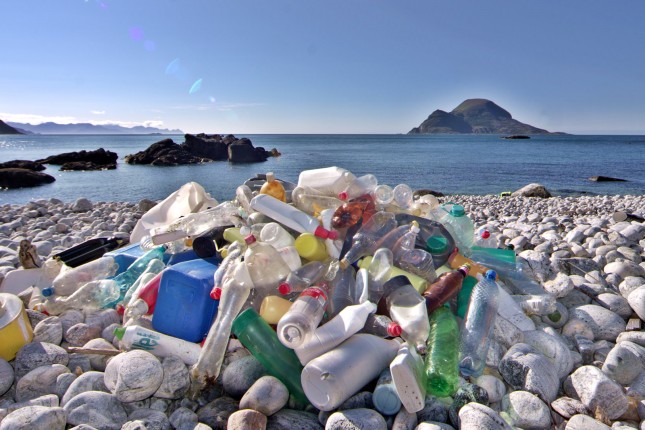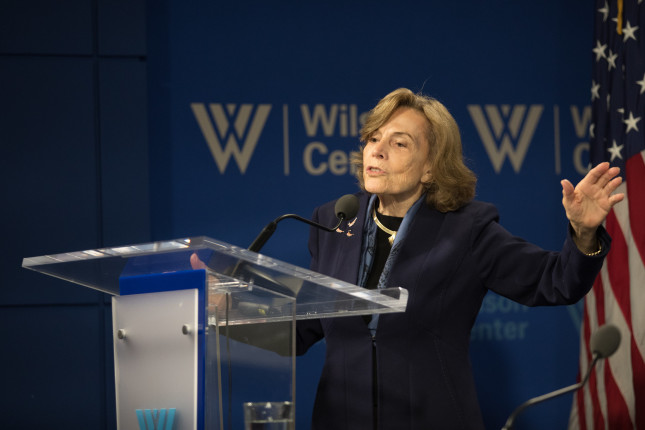-
Top Biden Climate Advisor, Others Preview 2021 Energy and Enviro News
›February 12, 2021 // By Joseph A. Davis
White House climate advisor Gina McCarthy gave an exclusive preview of the Biden administration’s Jan. 27 rollout of climate initiatives to more than 1,100 journalists, environmental experts and others watching a virtual program organized the same day by Society of Environmental Journalists.
The SEJ’s ninth annual Journalists’ Guide to Energy & Environment look-ahead event, entirely online due to the pandemic, was hosted for the second year by the National Geographic Society and co-sponsored by the Wilson Center.
-
Climate Change is a Security Issue: An Interview with Geoff Dabelko
›
Climate change is a threat multiplier; it is an underlying and exacerbating factor that makes things worse at a level that all actors, including security actors, need to pay attention to, said Geoff Dabelko, Professor and Associate Dean at the George V. Voinovich School of Leadership and Public Affairs at Ohio University and Senior Advisor to the Wilson Center’s Environmental Change and Security Program. He spoke in a recent interview about climate change and security as part of CimpaticoTV’s Climate Adaptation Channel.
-
CODE BLUE: Addressing NCDs in Maternal Health Starts with Increasing Access and Reducing Disparity
›
We’ve got a crisis impacting our mothers and a crisis impacting our babies, said Dr. Lisa Waddell, Senior Vice President of Maternal Child Health and NICU Innovation and Impact Deputy Medical Director at the March of Dimes, at a recent Wilson Center event launching the Maternal Health Initiative’s CODE BLUE series, developed in partnership with EMD Serono, a business of Merck KGaA, Darmstadt, Germany. She was referring to non-communicable diseases (NCDs), which impact maternal health in the United States and globally. NCDs kill 18 million women of reproductive age each year, accounting for two in every three deaths among women.
-
CODE BLUE: The Importance of Integrating Care for Maternal Health and Non-Communicable Disease
›
“Non-communicable diseases have been the leading cause of death for women for at least the past 30 years but are often underreported and undertreated,” said Priya Kanayson, Policy and Advocacy Manager at NCD Alliance at a recent Wilson Center event on the impact of non-communicable diseases (NCDs) on maternal health. The event marked the official launch of the Maternal Health Initiative’s CODE BLUE series, developed in partnership with EMD Serono, a business of Merck KGaA, Darmstadt, Germany. Globally, in 2018, 73 percent of deaths among women were due to NCDs, amounting to 18 million women of reproductive age dying per year due to NCDs. The compounding effects of NCDs complicate women’s experiences in many unseen ways, and the rise and gravity of NCDs pose a growing and often overlooked challenge to maternal health worldwide.
-
Family Planning in Humanitarian Settings is Achievable and Effective
›
“Family planning saves lives, even in times of crisis,” said Gwen K. Young, Managing Director at the Global Emergency Response Coalition at a Wilson Center event on October 8 on the importance of providing family planning and reproductive health services in humanitarian settings. Speakers from Save the Children, CARE, the International Rescue Committee, and FP2020 spoke to programmatic successes, innovative solutions, and local partnerships in fragile settings. Young highlighted that 1 in 70 people worldwide need humanitarian assistance and a quarter of these are women and girls of reproductive age. All told, more than 30 million women and girls in 42 countries.
-
Hidden Forces: The Role of Water in Economic Prosperity
›From the Wilson Center // Water Security for a Resilient World // October 22, 2019 // By Brigitte Hugh
“If you woke up one morning and found the taps in your house were dry, the first thing many of us here would do is pick up our phone and call the utility,” said Gordon Mumbo, Team Leader for Sustainable Water for the Mara River Basin, Winrock International. But for people living in the Mara River Basin, if their taps run dry, there is no utility to call, said Mumbo. Their only choice is to grab the water container and head down to the river where water quality may be poor. Mumbo spoke at the September 30th event, “Hidden Forces: The Role of Water in Economic Prosperity,” part of the “Water Security for a More Resilient World” series co-hosted by the Wilson Center, Winrock International, and the Sustainable Water Partnership.
-
High Seas Biodiversity Treaty Would Prioritize Conservation
›
Roughly 20 organizations wield some management authority in the high seas, but none of them have conservation as their core mandate, said Liz Karan, Senior Manager of the Protecting Ocean Life on the High Sea Campaign at the Pew Charitable Trusts. She spoke at a recent Wilson Center event hosted by the Polar Institute and Environmental Change and Security Program. The discussion revolved around aspects of a proposed global treaty on conservation and sustainable use of biodiversity in areas beyond the jurisdiction of any country. “The high seas treaty comes in as an opportunity to put conservation at the focus of the discussion of how we manage the high seas,” said Karan.
-
How Protecting the Antarctic Marine Life Could Help Save the Blue Planet
›
“We are stripping the life away from the blue planet,” said oceanographer, explorer, and author, Sylvia A. Earle. She keynoted a recent event on marine protected areas in Antarctica and the high seas co-hosted by the Wilson Center and The Pew Charitable Trusts with support from the Prince Albert II of Monaco Foundation. “Do we want a planet like Mars?” she said. “Most people would say, ‘I don’t think so. I like to breathe. I like water that falls magically out of the sky. I like having a living planet.’”
Showing posts from category video.


